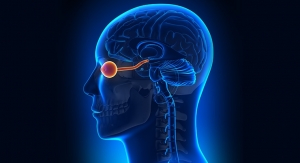02.07.19
Frontiers in Cardiovascular Medicine has published a new review paper examining calcium supplementation’s impact on bone and cardiovascular health, and the role vitamin K2 plays in proper calcium utilization. The review paper is the result of a grant from the Norwegian Research Council awarded to NattoPharma to fund a four-year PhD project to document the effect of calcium metabolism in the body based on the presence or absence of vitamin K2, MK-7, where NattoPharma has provided MenaQ7 vitamin K2 as MK-7 for research conducted at the University of Maastricht, led by Professor Leon Schurgers.
Prof. Schurgers’ research is additionally funded in part via the European Union’s Horizon 2020 research and innovation programme under the Marie Skłodowska-Curie grant agreement No. 722609 in which NattoPharma is a partner.
According to the authors, the paper “The bone-vasculature axis: calcium supplementation and the role of vitamin K,” provides an update on current literature on calcium supplementation among post-menopausal women and chronic kidney disease (CKD) patients and discusses underlying molecular mechanisms of vascular calcification. Prof. Schurgers states that therapeutic strategies with vitamin K2 treatment should be considered to prevent or hold the progression of vascular calcification as a consequence of excessive calcium intake.
“The work conducted in collaboration with NattoPharma under the Norwegian Research Council grant will provide further evidence that calcium without adequate vitamin K2 consumption might end up in the soft tissues where it is not wanted, rather than in the bone matrix, where it is needed,” says Prof. Schurgers, Professor of Biochemistry of Vascular Calcification and Vice Chair of Biochemistry at the Cardiovascular Research Institute Maastricht (CARIM), Maastricht University; and senior author and leader of the research project. “In a recent study by Bolland et al., it was shown that calcium supplementation of postmenopausal women was associated with a beneficial effect on bone, but also with increased myocardial infarction, suggesting detrimental effects on the vascular system possibly by inducing increased vascular calcification. As calcium supplementation is needed for bone, the precipitation in the vessel wall needs to be inhibited.”
The paper is significant because it adds to the growing body of evidence substantiating MenaQ7 vitamin K2 as a bone- and cardiovascular-support nutrient, according to NattoPharma Chief Medical Officer Dr. Hogne Vik.
“Compromised bone and heart health are not merely age-related issues; rather, they are signs of a core nutrient deficiency: vitamin K2,” said Vik. “NattoPharma has driven the research confirming vitamin K2’s important health benefits, showing in human studies with healthy participants that the progression of hardening of the arteries can be halted and even regressed, and that bone strength can be improved with daily supplementation of MenaQ7 Vitamin K2.
“We are proud that our partnership with Maastricht University and this prestigious grant have given us an opportunity to further the understanding of the necessity of obtaining adequate vitamin K2 for human health,” Vik added. “We hope these findings will earn the attention of manufacturers and consumers alike, helping them to recognize that all calcium supplementation must be paired with vitamin K2 so bone and heart health can be simultaneously supported.”
Prof. Schurgers’ research is additionally funded in part via the European Union’s Horizon 2020 research and innovation programme under the Marie Skłodowska-Curie grant agreement No. 722609 in which NattoPharma is a partner.
According to the authors, the paper “The bone-vasculature axis: calcium supplementation and the role of vitamin K,” provides an update on current literature on calcium supplementation among post-menopausal women and chronic kidney disease (CKD) patients and discusses underlying molecular mechanisms of vascular calcification. Prof. Schurgers states that therapeutic strategies with vitamin K2 treatment should be considered to prevent or hold the progression of vascular calcification as a consequence of excessive calcium intake.
“The work conducted in collaboration with NattoPharma under the Norwegian Research Council grant will provide further evidence that calcium without adequate vitamin K2 consumption might end up in the soft tissues where it is not wanted, rather than in the bone matrix, where it is needed,” says Prof. Schurgers, Professor of Biochemistry of Vascular Calcification and Vice Chair of Biochemistry at the Cardiovascular Research Institute Maastricht (CARIM), Maastricht University; and senior author and leader of the research project. “In a recent study by Bolland et al., it was shown that calcium supplementation of postmenopausal women was associated with a beneficial effect on bone, but also with increased myocardial infarction, suggesting detrimental effects on the vascular system possibly by inducing increased vascular calcification. As calcium supplementation is needed for bone, the precipitation in the vessel wall needs to be inhibited.”
The paper is significant because it adds to the growing body of evidence substantiating MenaQ7 vitamin K2 as a bone- and cardiovascular-support nutrient, according to NattoPharma Chief Medical Officer Dr. Hogne Vik.
“Compromised bone and heart health are not merely age-related issues; rather, they are signs of a core nutrient deficiency: vitamin K2,” said Vik. “NattoPharma has driven the research confirming vitamin K2’s important health benefits, showing in human studies with healthy participants that the progression of hardening of the arteries can be halted and even regressed, and that bone strength can be improved with daily supplementation of MenaQ7 Vitamin K2.
“We are proud that our partnership with Maastricht University and this prestigious grant have given us an opportunity to further the understanding of the necessity of obtaining adequate vitamin K2 for human health,” Vik added. “We hope these findings will earn the attention of manufacturers and consumers alike, helping them to recognize that all calcium supplementation must be paired with vitamin K2 so bone and heart health can be simultaneously supported.”

























